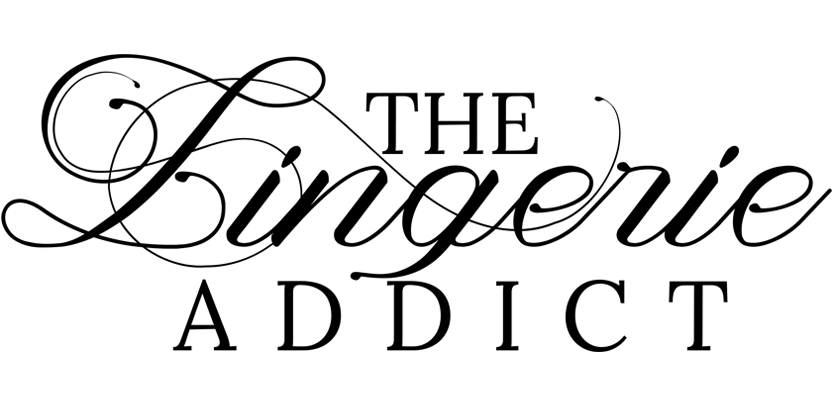Talking About Trans Bodies in Lingerie: A Beginner's Guide
I talk frequently about trans issues, and when I do so, I want to talk positively and discuss solutions. So when I set out to discuss trans bodies in lingerie, I wanted to put together a guidebook, a list of solutions that could easily be expressed as bullet points -- you know, like I usually do. But this topic is messier than most topics I cover. There are so many different ways that trans people describe their bodies, and different things work for different people. So I want to talk about how we can be better about discussing trans needs, but this is a thorny and complicated topic, and I'm struggling a little. I hope you'll all bear with me. I'm calling this a beginner's guide because it's for beginners, but also because it's by a beginner. (That's me).
As the result of working for The Lingerie Addict, I've developed some general strategies for how to talk about those bodies in a positive way -- but putting those strategies into words has been difficult. I've tried to be general, to aim for principles and ideas rather than hard and fast rules. I also want these guidelines to be multi-directional: they are intended to apply to cisgender people talking about trans bodies, but I also want trans people to consider how they talk about themselves and other trans folks. If you are talking with trans people about lingerie, even if you are yourself trans, I think the conversation will be happier and more productive if you try the following:
1. Surrender the Body Snark.
Body snark is pervasive in many communities, and when used against trans people is especially harmful. Body snark, as defined here by Cora, is “making people feel small and awful and ashamed because they have the audacity to be born with a body type you don’t like.” I think it's important to avoid directing body snark at other people, but especially for trans folks, it's crucial to not direct it at yourself.
When I first began talking about lingerie for trans people, I found myself tempted to talk very negatively about my own body: about how my breasts seemed ugly to me, about how I felt too chubby to be androgynous. It was the sitewide rule about body snark that protected me. I found myself trying to type sentences that were self-hating, and then deleting them so that I could actually run the article. It showed me how much of my own understanding of my body was rooted in hate.
Since then, I’ve started noticing how much body snark gets used casually in certain trans spaces. Like this one trans man on tumblr who is constantly commenting on other trans men’s pictures, calling their chests “boobs” or saying that nobody wants to see them. Or friends of mine who can’t stop picking apart their own gender performance, criticizing their lovely bodies. I think it’s good to give voice to insecurity, but I think it’s important to flag it immediately for what it is, rather than allowing it to leave your mouth dressed up as fact.
I'd like to add that body snark isn't just an internal trans issue. Dropping the body snark is especially important if you are a cis ally talking to a trans person. Don’t you dare say “I look like a man in this bra” when what you mean is “I feel insecure in this bra.” It hurts you and it hurts your friends. Stop.
2. Remember that for some trans people, talking about lingerie is going to be too personal.
Lingerie is intimate with the body: when we talk about lingerie fit, we always have to talk at least a little bit about the body beneath. I’ve had a few other trans and genderqueer people tell me that lingerie is not a subject they feel comfortable with. A clothing designer who works almost exclusively with trans people told me that she didn’t want to talk about lingerie because it lies too close to the dysphoric body. What I gathered from this is that it’s not that trans people don’t like or need lingerie, but rather that to talk about lingerie as trans is to reveal or even challenge the body, because if you haven’t had hormones or reshaping surgery (and sometimes even if you have), lingerie is what’s giving your body some of its shape.
I am lucky in that my dysphoria comes and goes, and that when it’s happening I can say “this will pass, tomorrow you will feel better.” I’m also a fan of mutability for my body and I enjoy thinking about how my body is shaped by my lingerie. So while I’m flattening my chest I can think “oh man, if my binder came in plaid it would be so delightful!” Whereas other people who bind don’t want to think about their binder for a second longer than is necessary: they want it to disappear and merge with their chest in their mental map of their body, so they need it to be as unobtrusive as humanly possible. For people who want their lingerie to be invisible, or a part of their body, talking about the pieces that make that body habitable for them can break the connection.
When I first began talking about these issues I was a little shocked that so few people were willing to go there with me. Over time, though, I've come to recognize my own position of privilege. Now I'm more likely to make sure that this is a topic someone is ready to broach.
3. Avoid assumptions about what people's body parts are called.
This one seems fairly obvious to me, but I’m always sort of shocked by how many people get this wrong. The relationship between trans people, their bodies, and the world is often complex and individually negotiated. So before you make assumptions about their bodies, you should ask what they prefer and what makes them most comfortable. I've been surprised before by what terms people wanted me to use, and so I was glad that I'd asked.
In situations where you need to talk about specific parts and what they’re up to at the moment, listen for what the person calls them. A good general guideline is to use neutral terms or terms that support the person’s stated gender identity. If that guideline doesn’t seem to be holding up for some reason -- if the person is saying otherwise, for example -- ask what they would prefer you to say. It’s a hard conversation but it’s one worth having. Yes, even if you are also trans. Because you should also:
4. Remember that there is more than one valid trans experience.
Some trans people experience strong dysphoria. Some don’t. Some people feel really married to “technical” terms for describing their chests or their genitals, some talk about them poetically or metaphorically, some don’t want to talk about them at all. Some people are proud, some uncomfortable, some both, some neither. If you’re in a position where you are fitting a trans person for lingerie, or talking about lingerie in general, be flexible in your assumptions. There are as many ways to be trans as there are trans people.
Since I talk about lingerie very publicly, I’ve once or twice had people critique me or assume they knew things about my gender identity because of what I was saying. I recently had a trans man assume I was cisgender and didn’t know what I was talking about because I wanted brightly colored and patterned binders for myself and he didn't want that. It felt awful, but I try to keep him in mind because I want to remind myself not to be quick to judge other people's seriousness or commitment. If you occupy a trans body, and you want to talk about the underthings you like, I will never tell you that your choices are wrong or invalid because they don't match my own. I would ask that anyone reading this, trans or cis, do the same.
5. Keep talking.
This is perhaps the most important thing I can say: we need more conversations about trans and genderqueer bodies and identities. I've learned and grown a lot from sharing my experiences with my body in lingerie, and I hope as time goes on, other people will become more comfortable with having these conversations with me. I know it's difficult, especially in a culture where violations from body snark to acts of violence take place daily. But I can't be representative on my own; my experience is just one of many, and I think that participating in these conversations makes us stronger. Take your time; get comfortable in your own body and your underthings and if you can, if you feel ready, please speak up.
I know I left something out, because this is a massive and complicated issue. If you feel up for it, tell me about how you talk about your body and your lingerie in the comments.








